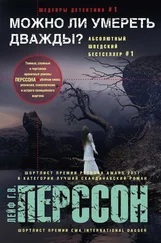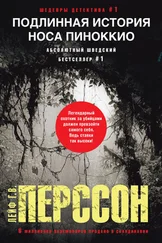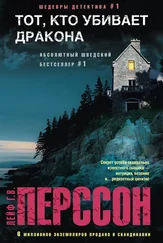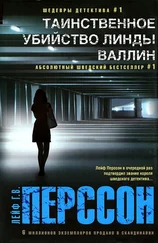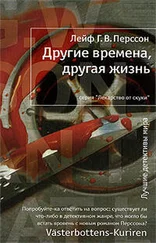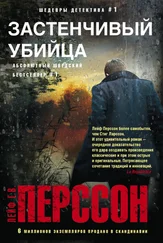Liska and his host had reserved the entire evening for good drink, good food, and agreeable conversation about old memories, the brightening future, and the current geopolitical situation, but they hardly had time to sit down at the table before they were interrupted. Just as the host’s red telephone was ringing, Liska’s driver and bodyguard knocked on the door, and then it was back to work — for both of them, each in his own sphere, but for the same reason.
Before they went their separate ways, Liska’s host quoted Churchill with an easy smile and the reservation that the value of being forewarned obviously depends on the possibility of being able to defend oneself. Liska then went to his borrowed office at the American embassy out on Djurgården. There he spent the night mostly talking on the phone and wandering back and forth between his desk and the TV over by the window. “Poor bastards,” he thought as he looked out into the black November night, and it was the fifty thousand people whose lives had just been put on the market that he had in mind.
It was Bureau Chief Berg, head of operations for the Swedish secret police, who asked the question.
“Could you see yourself doing it, Lars?” Berg asked.
Could I? thought Johansson. Could I see myself doing it?
“Yes,” said Johansson.
And that was how the whole thing started.
A good many things had happened in the secret police since the prime minister was murdered in February 1986. The fact that the murder had unleashed a number of re-evaluations of the secret operation was the least important. Where wriggling out of such things was concerned, the people at the agency had decades of practice. In secret police — related work, it was also the case that every investigator with a minimum of instinct for self-preservation realized the importance and value of proceeding carefully.
As this concerned things that were secret by nature, it was extremely important in the process not to damage an operation of decisive public significance, for that could only profit the enemy and in the final analysis even risk the well-being of the entire nation. Therefore the object of the re-evaluation, just like always, escaped with the usual mixture of cosmetic measures and minor personnel changes. All in accordance with the old, proven rule of giving the idealists peace of mind and the cannibals the pound of flesh they were always coveting.
In order to “underscore a more civilian and democratic direction,” the operation changed its name from the security department of the National Police Board — Sec — to the Security Police, or SePo, as nowadays even police officers called it. For the same reason the operation was also given greater independence in relation to its immediate parent body, the National Police Board. In order to finally make the head of the Swedish secret police the formal equivalent of his foreign colleagues he had been elevated to the position of general director. Finally, a number of individuals had been kicked diagonally upward or moved around within the upper police bureaucracy, while just one had to step right out into the cold, though he retained his salary.
At the same time other things had happened that had considerably more far-reaching consequences, the most important being the collapse of the Soviet Union and the breakup of the Eastern Bloc. The old “Russian squad,” which historically had claimed more than half of all combined resources if properly calculated, was now not even a shadow of its former self, and if it hadn’t been for Bureau Chief Berg’s bureaucratic creativity the entire organization would have been in serious danger even as the enemy lowered the flag.
Berg was without comparison the shrewdest operational head in the history of the secret police, and instead of coming to a stop when the old main road was closed off, he quickly found new paths in the terrain of security politics: the situation in the Balkans, European and international terrorism, the new threat from the extreme right, the nation’s own growing need for Swedish constitutional protection, and best of all the assassination of Olof Palme, which created a veritable boom in the personal security industry.
The same year that the Berlin Wall fell, SePo’s bodyguard squad passed the agency’s old Russian squad in personnel strength, and after that the demand for bodyguards only increased. Upper-class people felt threatened as never before, and right or wrong this was useful to SePo. So far all was well and good, but other things were considerably more worrisome.
The threat against Swedish democracy nowadays came from the right and not from the left. It would have been simple enough just to turn your head, but the problem was the historical inheritance from the days of the cold war collected in the archives of the secret police. A workforce of hundreds who had worked doggedly for decades registering hundreds of thousands of Swedish citizens because their political sympathies were to the left of the Social Democratic regime. A sad story, but unfortunately only one side of the problem.
Another side of the problem was that the political powers that be from the days of the cold war who had authorized SePo to collect all this information were now on their way out. The majority of the older ones had already died a natural death or had long since retired. The prime minister had been shot and his contemporaries who still remained in the corridors of power were a shrinking few who were counting the days to the end. Thus the basis for the exchange of services between the secret police and its political client had been demolished.
The burden of guilt still remained, and in a moral sense it was greater than ever, but there were no old clients to go to for help paying the claims that would be raised against the secret police. Much less anyone with whom you could exchange services when you ended up with your beard in the mail slot through your own fault. Nowadays the whole system was rotten through and through, in Berg’s opinion. Humanly and morally rotten to the core, and deeply unjust to him and his colleagues, who had only been doing their jobs.
And as if this wasn’t enough, there was a third side to the matter. The new powers that be — historically unburdened by this sorry story — were obviously also strongly overrepresented in SePo’s old archives from the radical sixties and seventies. This Berg knew from his own experience, because he’d had to play fireman on a number of occasions when new individuals, who were now living other lives and operating in a different time, had been appointed to high-ranking official positions. And thanks for the help was the last thing he could expect. Instead it was a matter of keeping his lips sealed and hoping for the best.
This complication also happened to be one of the first issues that Berg brought up during his conversation with Johansson, and the reaction had of course been as expected.
“If you want me to clean up after you then I think you’ve come to the wrong person,” said Johansson, who suddenly appeared both expectant and guarded.
“No, God help us,” Berg answered, making a deprecating gesture. “I intend to take care of that myself. I thought you should start with a clean desk.” Thanks to me cleaning up after others. It was that unjust, he thought.
“A lovely thought,” said Johansson. “That we’ll all get to go into the new millennium with an empty desk.”
“That’s pretty much the point,” Berg clarified, still sensing Johansson’s hesitation.
“So that’s why you’ve turned to a predecessor of the ’68 generation,” said Johansson, smiling.
“Oh well,” said Berg soberly. “You understand what I mean.”
Читать дальше

